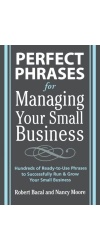The training and motivational speaker industry is a strange one where, in some cases, huge amounts of money are paid for minimal amounts of time and zero results. For more on organizational learning, motivational speakers and training visit The Training and Development Free Resource Center
They stand tall in the saddle, and they ride in on white horses announcing to one and all they can change people’s lives. Or at least boost their levels of motivation to get work done. Sometimes quirky, almost always charismatic, and proclaiming themselves as gurus, experts or even geniuses, they are the motivational speakers who travel around, getting huge dollars from companies to magically tweak their employees. And beyond a day or two at best, they contribute almost nothing to the organization except to lighten the corporate bank account.
There’s two kinds of motivational speakers. One type you should stay away from like the plague, while the other CAN contribute to your organization. The first type is the rah-rah, light a fire under ’em kind. With little to say except fancy sound-bytes, and exhortations, the worst of these can talk for an hour and say almost nothing. People who attend these sessions may come away slightly energized, but if you ask them what they learned, they’ll look at you blankly, because these sessions don’t promote learning, or solving problems. Entertaining, yes. Useful, not really.
The second type of motivational speaker is also entertaining (one would hope), but adds another dimension to the presentation. Content. Content based motivational speakers not only energize but also have something to say apart from the rah-rah kind of thing. They present ideas, solutions to problems. They also tend to be people who don’t call themselves experts, or gurus, and let the audiences decide whether they are those things.
If you are looking for someone to do an energizing presentation, look for the person who has something to say. The prospective speaker should be able to tell you what people will learn from the session, and how they might be able to use that learning at work. If the speaker can’t tell you, then you should look elsewhere.
And if you want straight entertainment, hire a local comedian. It’s probably cheaper, and won’t create any false expectations about what people attending will get out of it.
One more thing. If your prospective speaker self-proclaims as a guru, expert, or genius look elsewhere. The “real deal” speakers, who will add something to your organization don’t have to give themselves exulted labels. Their clients know how good they are, and real deal speakers are confident enough in their own abilities that they don’t have to throw it in people’s faces.
Bonus: Can Motivational Speakers Actually Cause Harm
In a previous article I mentioned that most motivational speakers cost good money and achieve nothing more than very temporary increases in “motivation” and morale. That’s a best case scenario. The poor ones don’t achieve anything at all. There’s another question though. Can motivational speakers cause harm to individuals and organizations?
The answer is a resounding YES. Let’s put aside the cost/benefit issues for now. Let’s look at the potential effects on employees and organizations. To do so we need to consider the issue of EXPECTATIONS.
One of the most common problems organizations have with respect to employees, is credibility. An organization where employees see the company and management as keeping their promises tends to be more successful. Simply put, there’s less cynicism, less complaining, and more loyalty to companies that don’t make promises they don’t keep. Companies and managers that promise new things and don’t deliver, get into big trouble. What happens is when a company promises that a “new” system will save 35% of time, employees want to believe it. On implementation, if it appears to employees that the “promise” was incorrect, how do they react? They blame management for making a bad decision (at least in their eyes), and are less likely to react with enthusiasm to the “next” promise.
What does this have to do with motivational speakers? First, most motivational speakers are brought in by management. They are presented to employees as valued gurus, with something to say. Expectations are intentionally created regarding the value that the speaker will provide. Then, the speaker drops in for an hour or two, does the motivational thing, and a big chunk of the audience is disappointed. Perhaps it’s that many people don’t like feeling they are being “manipulated into motivation”. Or just as common, apart from the theater and pizzazz of the motivational speaker, there is often no content, and little practicality to what is presented.
So we end up with the classic cycle of expectations and disappointment. Raise expectations with the pre-speaker hype. The speaker disappoints many in the audience, and then leaves the scene. However the managers and executives who brought in the speaker are the ones that look stupid. They have just lost more credibility in the eyes of their staff.
Motivational speakers can cause harm in another way. Individuals who may be susceptible to motivational ideas and theater, can go away “halfcocked”…the a little knowledge is a dangerous thing syndrome. Here’s a real example. Jane was a receptionist, somewhat quiet, but what we would call a bit passive-aggressive. Management, with good intentions, arranged to have Jane attend a high profile motivational session on assertiveness and taking control of one’s life. Lo, and behold…it TAKES…she GETS it (or does she). She returned to work all hyped up, all “assertive” but her understanding of being assertive (based on the few hours with the motivational speaker) was twisted. She actually ended up more aggressive, impossible to work with, and no amount of coaching from her manager helped, once she “got the spirit” from the motivational speaker. In the case of Jane, she eventually was fired. Certainly Jane was harmed personally.
There are indeed situations where motivational speakers can cause harm to companies, management, and even individual employees. When you consider bringing in a motivational speaker ask yourself these two questions:
1) What will happen if we make promises we can’t deliver?
2) Is it possible some individuals will get the “wrong end of the stick” and take it TOO seriously?






